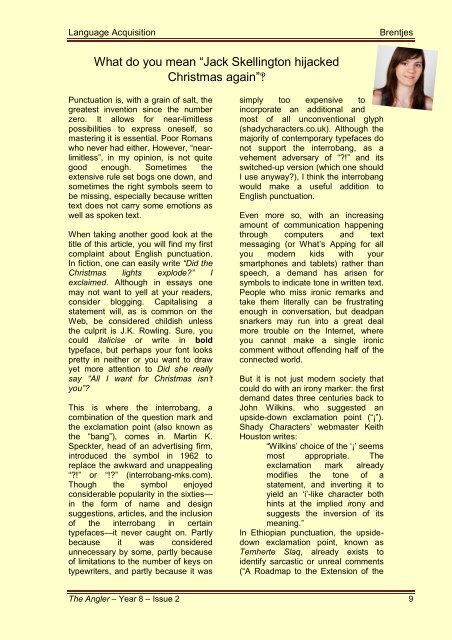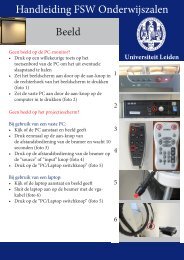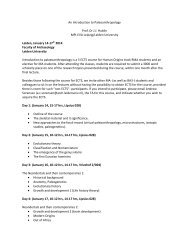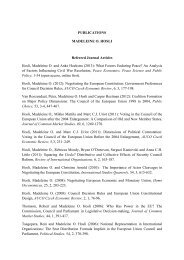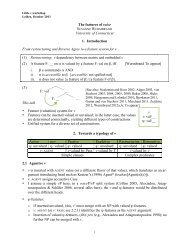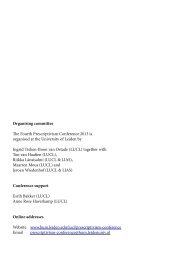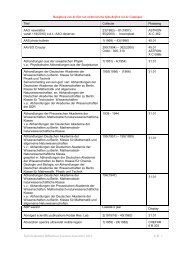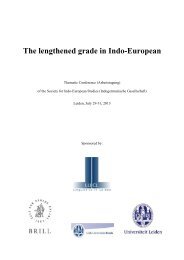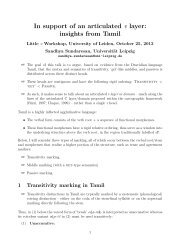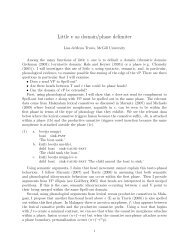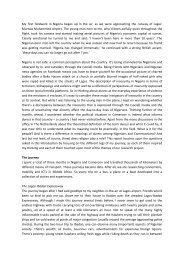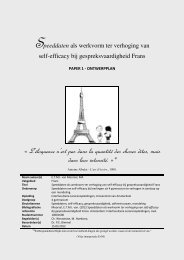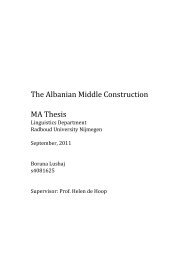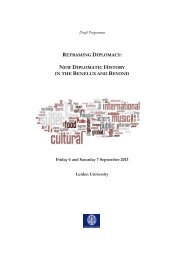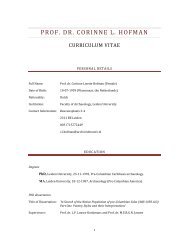Issue 2 - O
Issue 2 - O
Issue 2 - O
Create successful ePaper yourself
Turn your PDF publications into a flip-book with our unique Google optimized e-Paper software.
Language Acquisition<br />
Brentjes<br />
What do you mean “Jack Skellington hijacked<br />
Christmas again”‽<br />
Punctuation is, with a grain of salt, the<br />
greatest invention since the number<br />
zero. It allows for near-limitless<br />
possibilities to express oneself, so<br />
mastering it is essential. Poor Romans<br />
who never had either. However, “nearlimitless”,<br />
in my opinion, is not quite<br />
good enough. Sometimes the<br />
extensive rule set bogs one down, and<br />
sometimes the right symbols seem to<br />
be missing, especially because written<br />
text does not carry some emotions as<br />
well as spoken text.<br />
When taking another good look at the<br />
title of this article, you will find my first<br />
complaint about English punctuation.<br />
In fiction, one can easily write “Did the<br />
Christmas lights explode?” I<br />
exclaimed. Although in essays one<br />
may not want to yell at your readers,<br />
consider blogging. Capitalising a<br />
statement will, as is common on the<br />
Web, be considered childish unless<br />
the culprit is J.K. Rowling. Sure, you<br />
could italicise or write in bold<br />
typeface, but perhaps your font looks<br />
pretty in neither or you want to draw<br />
yet more attention to Did she really<br />
say “All I want for Christmas isn’t<br />
you”?<br />
This is where the interrobang, a<br />
combination of the question mark and<br />
the exclamation point (also known as<br />
the “bang”), comes in. Martin K.<br />
Speckter, head of an advertising firm,<br />
introduced the symbol in 1962 to<br />
replace the awkward and unappealing<br />
“?!” or “!?” (interrobang-mks.com).<br />
Though the symbol enjoyed<br />
considerable popularity in the sixties—<br />
in the form of name and design<br />
suggestions, articles, and the inclusion<br />
of the interrobang in certain<br />
typefaces—it never caught on. Partly<br />
because it was considered<br />
unnecessary by some, partly because<br />
of limitations to the number of keys on<br />
typewriters, and partly because it was<br />
simply too expensive to<br />
incorporate an additional and<br />
most of all unconventional glyph<br />
(shadycharacters.co.uk). Although the<br />
majority of contemporary typefaces do<br />
not support the interrobang, as a<br />
vehement adversary of “?!” and its<br />
switched-up version (which one should<br />
I use anyway?), I think the interrobang<br />
would make a useful addition to<br />
English punctuation.<br />
Even more so, with an increasing<br />
amount of communication happening<br />
through computers and text<br />
messaging (or What’s Apping for all<br />
you modern kids with your<br />
smartphones and tablets) rather than<br />
speech, a demand has arisen for<br />
symbols to indicate tone in written text.<br />
People who miss ironic remarks and<br />
take them literally can be frustrating<br />
enough in conversation, but deadpan<br />
snarkers may run into a great deal<br />
more trouble on the Internet, where<br />
you cannot make a single ironic<br />
comment without offending half of the<br />
connected world.<br />
But it is not just modern society that<br />
could do with an irony marker: the first<br />
demand dates three centuries back to<br />
John Wilkins, who suggested an<br />
upside-down exclamation point (“¡”).<br />
Shady Characters’ webmaster Keith<br />
Houston writes:<br />
“Wilkins’ choice of the ‘¡’ seems<br />
most appropriate. The<br />
exclamation mark already<br />
modifies the tone of a<br />
statement, and inverting it to<br />
yield an ‘i’-like character both<br />
hints at the implied irony and<br />
suggests the inversion of its<br />
meaning.”<br />
In Ethiopian punctuation, the upsidedown<br />
exclamation point, known as<br />
Temherte Slaq, already exists to<br />
identify sarcastic or unreal comments<br />
(“A Roadmap to the Extension of the<br />
The Angler – Year 8 – <strong>Issue</strong> 2 9


